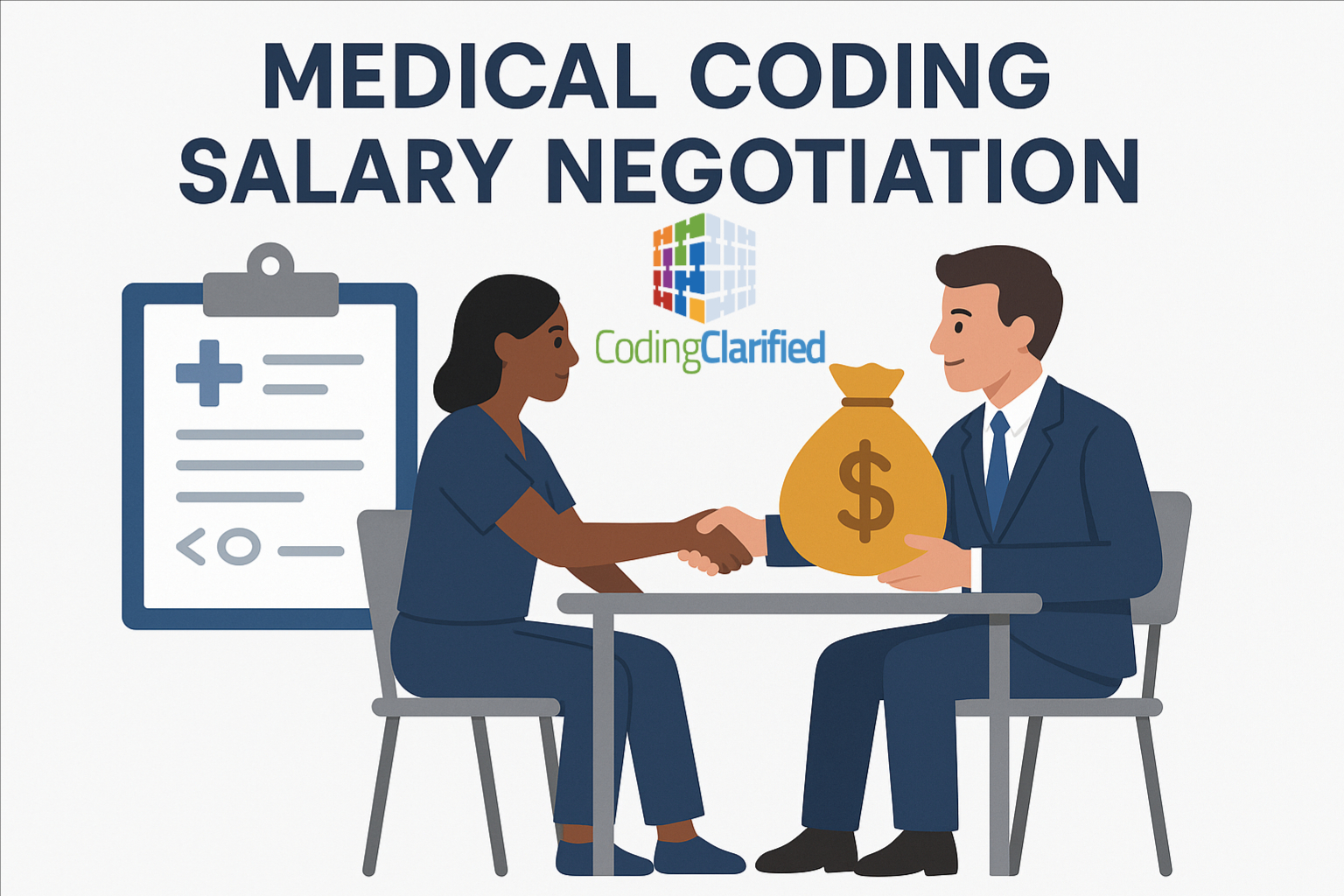How to Negotiate Your Medical Coding Salary – Even Without Experience
Entering the medical coding field is an exciting career move, but negotiating your starting salary can be intimidating—especially if you’re new or being offered a signing bonus. Whether you’re a recent CPC graduate or a seasoned coder looking for a new role, knowing how to confidently discuss compensation during medical coding salary negotiations is essential to maximizing your income and establishing your value.
Why Salary Negotiation Matters
Medical coders play a crucial role in revenue cycle management, ensuring accurate billing and reimbursement. Employers know the value of skilled coders, which is why salary negotiation is not only expected—it’s encouraged. A strong negotiation can lead to higher pay, better benefits, or a more favorable work-life balance.
Salary Negotiation Tips for All Coders
Research Local Salary Ranges
Use salary tools from AAPC, Glassdoor, and ZipRecruiter to find average pay for medical coders in your region. Factors like credentials (CPC, CCS, etc.), remote vs. on-site work, and healthcare specialty all influence salary.
Know Your Value
Highlight any relevant skills, even if you’re entry-level. These can include:
-
Internship or practicum experience
-
Knowledge of ICD-10, CPT, and HCPCS
-
Completion of an AAPC or AHIMA-approved course
-
Familiarity with EHR software or medical terminology
Avoid Accepting the First Offer Immediately
Even if an offer includes a signing bonus, take time to evaluate the full compensation package. A higher base salary often yields greater long-term benefits than a one-time bonus.
Prepare Your Talking Points
Practice your negotiation language. For example:
“Based on my training, certification, and understanding of the role’s responsibilities, I was expecting a salary closer to $X.”
Special Considerations When Offered a Signing Bonus
Signing bonuses can be attractive—but be cautious:
-
Ask About Clawback Clauses: Some bonuses require you to stay for a specific period (e.g., 12 months) or pay them back if you leave early.
-
Don’t Let It Replace Base Salary: Ensure the signing bonus doesn’t distract from negotiating a competitive base salary.
-
Use It as Leverage: If a company is offering a bonus, it may indicate they’re motivated to hire quickly—giving you more room to negotiate.
Tips for Entry-Level Coders
Even with no direct experience, you can still negotiate effectively:
-
Mention Your Certification: Newly certified coders have shown initiative and skill development.
-
Highlight Soft Skills: Employers value attention to detail, organization, and communication.
-
Ask for Career Growth Opportunities: If salary flexibility is limited, ask about raises, CEU reimbursements, or internal promotions.
Final Takeaways
-
Be professional and respectful throughout the negotiation process.
-
Always get the final offer in writing.
-
Know your bottom line—don’t be afraid to walk away if an offer doesn’t meet your needs.
Negotiating your medical coding salary is about more than money—it’s about advocating for your worth and setting the tone for your career. With the right preparation, even first-time coders can confidently secure a competitive compensation package.
How to get hired as a CPC-A https://codingclarified.com/get-hired-as-a-cpc-a/
Resume tips https://codingclarified.com/medical-coder-resume-tips/
Interview tips https://codingclarified.com/cpc-interview-tips/
AAPC Carer Center https://www.aapc.com/resources/career-center
Medical Coding and Billing Jobs https://codingclarified.com/jobs/
CPC-A and No Experience? Conquer Your First Medical Coding Job! https://codingclarified.com/gaining-experience-as-a-new-medical-coder-cpc-a/
Identifying Legitimate Medical Coding Jobs https://codingclarified.com/identifying-legitimate-medical-coding-jobs/

